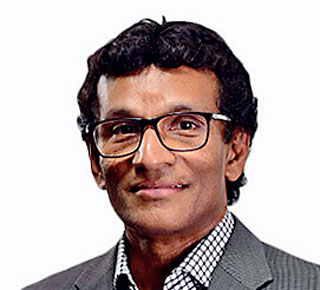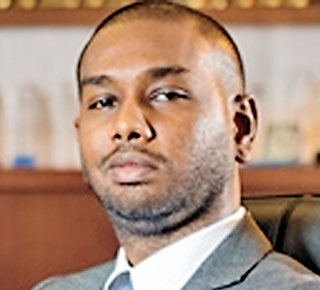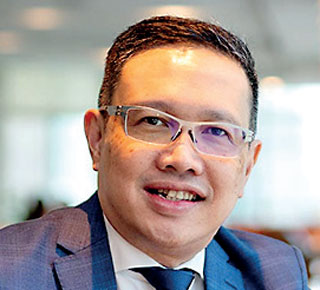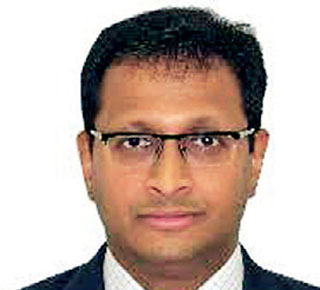Sunday Feb 22, 2026
Sunday Feb 22, 2026
Tuesday, 8 November 2022 00:00 - - {{hitsCtrl.values.hits}}

Thilan Wijesinghe

Dushyantha Perera

Victor Saw

Vadison Krishnamurthy
By Darshana Abayasingha
Sri Lanka has on several occasions corrupted privatisation processes by tinkering with management agreements, and investors will be wary of falling victim to the old formula because the track record of the country is not good, says former Chairman of the Board of Investment, Thilan Wijesinghe.
“Let’s learn from experience. With Sri Lanka Telecom we gave away 40% to a private party and had a private management agreement in place, and this was similar to SriLankan Airlines. But what happens is that a subsequent Government comes and the SLT management agreement was changed. Essentially the Government can then interfere as if it was a completely state-owned enterprise. So, we corrupted the privatisation process. Whatever flaws were there in the management agreements were exploited. We know the reasons why the Emirates management was kicked out. If there are flaws in the management agreement it must be renegotiated at the point of renewal or any other time,” he said.
Wijesinghe, now Chairman of TWCorp, was speaking at a forum on regional learnings of restructuring around the airline sector, hosted by PWC, titled ‘A Safe Landing for SriLankan Airlines’.
Dress to kill
With respect to the proposed sale of the loss-making state-owned, SriLankan Airlines, Wijesinghe suggested – in order to dress up the bride – the Government takes a closer look at the policy environment and supporting projects. This includes the planned expansion of the International Airport at Katunayake, and discussions on whether airport management could be handed over to a private party. He noted there are many successful PPP models where airports are well-managed by the private sector. Wijesinghe also hinted at the need to tie in tourism development plans that could include the casino regulation act, which he said need to be brought to global standard to attract international operators.
“Just disposing of the airline is not sufficient. The airline needs fresh capital in order for it to compete. I don’t feel it is appropriate to sell the jewels in the crown such as the Ground Handling operations and SriLankan Catering without realising their full potential. If SriLankan Airlines can grow under new management, those entities could perform even more.”
The question of numbers
The airline should be under majority private ownership for better decision-making and ease of business. If the Government has a majority stake, then there can also be questions like the procurement process. You must decide what it is you want to sell, and the Government needs to stick to it. When the sale of the airline was mooted under the previous regime, we were very clear that the Government was getting out of 51% ownership. Having the Government own 49%, another national company owning 2% and a foreign party having 49% that would work. It must be majority under private ownership,” Wijesinghe remarked.
Asian perspectives
Detailing some of his experience with the restructure of Malaysian Airlines, PWC Malaysia Victor Saw, explained how his Government passed an act of parliament to provide special laws to create a national airline group to establish a new entity to replace the national flag carrier, whilst ensuring continuity of airline operations. He noted how unfortunate incidents prior to the pandemic and depletion in cash flow during COVID-19 had forced the Government to recalibrate the airline’s business model. He stressed the need to safeguard assets situated overseas from possible claims by offshore creditors, and to transition a right-sized workforce from the old company to the new one. The liabilities of the old company must have minimal impact on the new, and a well-structured plan B must also be in place, Saw said.
“You need an administrator only for the old company, there must be a seamless transition so the new company can function whilst negotiation is on. The new company may not want to take on any debts of the old company. But we may sub-lease some of the assets from the old company to the new one to ensure smooth operations. Demands must come from the new company, not the old one,” he added.
A PWC Partner in Kuala Lumpur, Saw said management of a new company must determine what aircraft they need, restructure staff and retrain those who will continue, whilst it offers lessors with numerous options on the existing fleet. This could include revision of rent to reflect market rates or termination of agreements. Malaysia had set a target of restructuring the airline within six months and then focused on implementing the business plan.
Saw also pointed out some lessors may hold on to lease liability, whereby potential investors would need to negotiate with them early one and even consider under which governing laws the said agreements are covered by.
Plans without actions
Shedding light on some of the previous plans drawn up with regard to the restructure of SriLankan Airlines, Wijesinghe said the local Public Private Partnership Agency too had proposed an aviation holding company, under which would fall the fully-owned catering and ground handling companies. He revealed a fully-owned engineering company was also mooted. The next consideration was what viable quantum of debt can remain within the individual sub cores, and what the quantum is that can be put into the aviation holding company that can be held by the Government or absorbed by the treasury.
Closer to home, a Partner at PWC in India, Vadison Krishnamurthy, said there were many similarities between the status of Air India and SriLankan Airlines, and added what is really attractive to investors are the slots an airline enjoys at destinations around the world. “That is what people really look at even if the equity is negative.” Krishnamurthy said bidders for Indian Airlines were allowed to tell how much debt would be absorbed, and remarked that profits from ground handling and catering could be used to reduce the debt burden of SriLankan Airlines to make the airline more attractive for an investor.
A structure that works
Ruvini Fernando from PWC Sri Lankan moderated the event, and she enquired about structures and processes that could be employed by Government and parties to see through the process of privatisation.
A Partner at Sudath Perera Associates, Dushyantha Perera, said there are different transaction structures that could be employed for this process, and said it was advantageous that SriLankan Airlines and SriLankan Catering are incorporated under the Companies Act. He noted the legal framework within covers restructuring in a fairly modern manner, as it encompasses best practices drawn from similar legislation from the UK, New Zealand and other countries.
“The Companies Act is broader. So, we could use those readymade tools, rather than have to go through an act of parliament. Some options include creditor compromises, amalgamations or mergers. We could appoint administrators in situations of insolvency. We also have the option of going to the commercial court and getting an order. These provisions are all present in the Companies Act. However, what is not so well known here are debt aspects, which can give rise to some complications as banks have interests through parate rights, etc.,” Perera stated.
The senior counsel said parties simply need to be cognisant of these options rather than have to consider an act of parliament. Leases could be subject to foreign law and these may not necessarily recognise all the aspects of Sri Lankan law or the companies act, he said. Managing staff also needs to be carefully thought out, but the tools are there and it’s just a question of how these tools are used, Perera opined.
Changing course for the better
Emirates took over Air Lanka in 1998, where it was rebranded SriLankan. The agreement was terminated in 2008. The airline has 24 aircraft with almost 7,000 staff and brings in 30% of travellers into the country. Emirates in comparison has over 260 aircraft, but is over 300% more efficient than its South Asian counterpart. Emirates, the world’s largest airline flying to over 150 destinations employs 232 persons per aircraft, whilst SriLankan has 270.
Thilan Wijesinghe, who was in charge of the Public Private Partnership Agency during the previous regime said Emirates had far less losses during its management tenure, which incidentally was during the period of the civil war. In contrast, under state administration, the airline has run up massive losses during a time of peace and growing tourist arrivals.
“Government appointed boards cannot run an airline or any business in the current socio-political context of Sri Lanka. I sat on the Board of the privatisation commission and Chairman of BOI when we first privatised SriLankan Airlines, and It was not a perfect management contract that was entered into with Emirates. Some of those imperfections were a result of it being rushed through. We have unfavourable leases which were about 25% of the loss in 2018, and unfavourable collective bargaining agreements. So, they have to be brought in line with international airlines, but not cause any harm to the employees concerned. We still want to have budget airlines coming in the future. We must not muddy the waters and whilst privatising SriLankan Airlines you should not have a parallel process to invite a budget airline, which happened in the past,” Wijesinghe stated.
He also stressed the need to appoint a specialist airline financial transaction advisor and revealed that a British-based company had been appointed to this position previously. Anyone who buys this airline would need to understand the policy considerations the Government is willing to provide, and present a path to profitability for its consideration.
“We need transaction advice to explain what would be the economic benefits the Government and the country would gain. Also assess what sort of money is required to recapitalise the airline. The airline would need a couple of 100 million dollars to re-fleet and compete with big players if it is to become viable. Thirdly, you need a transaction advisor to have credibility when you approach an investor. Airlines specialists know who to approach, also what sort of investor would pose a conflict of interest, where they would rather grow their airline and not ours. Who would propose synergies? As a Sri Lankan I would say any proposal on privatisation should be skewed in favour of a strategic investor that would enhance tourism, open new routes and give value to shareholders,” Wijesinghe said.